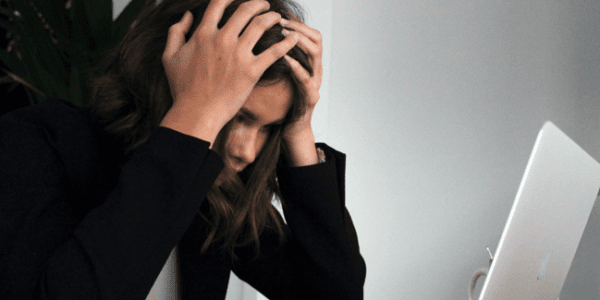Domestic Abuse – It’s Our Business by Lighthouse
27/03/2020 - Lighthouse Women's Aid

Domestic abuse, also know as domestic violence, can happen to anyone. Sometimes the most unlikely people are experiencing it, however their public persona does not give any indicators to what is going on behind closed doors while they are at home.
Here, Lighthouse Women’s Aid sets out to explain what domestic abuse is, why it is so important to recognise the behaviours and why now, more than ever, we need to support the most vulnerable.
Domestic abuse has no boundaries – it has no for regard for your gender, sexuality, wealth, educational level, status, race, religion, age, geography or disability. It is not only the stereotypical person who experiences domestic abuse.
Domestic abuse is a social epidemic and affects many of us. In Suffolk it affects one in three women and one in six men. So statistically, the chances are that we all know someone who is experiencing it, or the shadow of domestic abuse is in our families.
In the year ending March 2019 2.3 million adults (16-59yrs) experienced domestic abuse in the UK. This was 1.6 million women and 695,000 men. (1)
Domestic abuse affects men and women however the vast majority of high risk cases are women who are experiencing the abuse.This fact is reflected in the following statistics:
Every week 2 women are killed by a partner or former partner, 3 women a week take their own lives and 30 women a day attempt suicide because of domestic abuse. (2).
The total cost of domestic abuse to the UK economy is £66 billion. (3)
Many of you may be aware of physical and verbal domestic abuse but domestic abuse also includes emotional, psychological, sexual, financial and coercive control. (4)
Coercive controlling behaviour became an offence in December 2015 and Suffolk has seen an increase of 250% of cases in three years (5). Coercive control is not a new phenomenon but it is now a criminal offence.
Coercive control is a pattern of behaviours, not a one-off incident and these can include:
- Taking control over aspects of a person’s everyday life e.g. where they go, who they see, what they wear and when they can sleep
- Isolating you from family and friends
- Controlling how much money you have and how you spend it
- Monitoring your activities and movements
- Repeatedly putting you down, calling you names or telling you that you are worthless
- Threating to harm or kill you or your children
- Threatening to publish information about you or report you to the authorities or the police
- Damaging your belongings, property or household goods
- Forcing you to take part in activities that you don’t want to
- Depriving you of access to support services e.g. medical services or specialist support
- Enforcing rules and activities which humiliate, degrade or dehumanize the victim
- Preventing you from having access to transport or from working
- Constant texting or checking up on the person
The motivation behind coercively controlling behaviour is power and control over the individual and this also helps us understand why it is so extremely difficult to leave an abusive relationship.
Cases of coercive control are defined as: ‘’an act or pattern of acts designed to make a person subordinate or dependent’’ (6)
Domestic abuse has far reaching effects on your physical, emotional and mental health. The impact on our physical health includes injuries, chronic illnesses, disability, isolation, poverty, alcohol or drug mis-use. It is also known as ‘intimate terrorism’ or ‘gas lighting’.
The impact on our emotional health includes low self-esteem, poor confidence, trust issues, demotivation, feelings of hopelessness, guilt and blame.
The impact on our mental health includes depression, anxiety, PTSD, panic attacks, hypervigilance, self harm, suicidal thoughts or attempts, eating and sleeping disorders.
Children who are living in a home where there is domestic abuse, even if they do not directly witness the abuse, are likely to experience the same impacts as the adult who is experiencing it.
Here at Lighthouse, like many other domestic abuse agencies, we are very concerned about the impact of social isolating and working from home is going to have on the families where there is domestic abuse. For those in abusive relationships the workplace may be their sanctuary and they will no longer have access to that safe place.
During this unprecedented and challenging time, please look out for friends, family members or colleagues who may be experiencing domestic abuse and signpost them to the following telephone numbers for advice on domestic abuse:
Please feel reassured that domestic abuse services are still available to the people who need them.
Lighthouse Advice Line: 01473 228270 – 9am -5pm >> http://lighthousewa.org.uk/
National Domestic Abuse Helpline: 0808 2000 247 – 24 hrs
- Office of National Statistics
- org.uk
- Professor S. Walby University of Leeds 2016-2017
- https://www.gov.uk/guidance/domestic-violence-and-abuse
- EADT 02/03/20
- Professor Evan Stark
All articles on this news site are submitted by registered contributors of SuffolkWire. Find out how to subscribe and submit your stories here »



